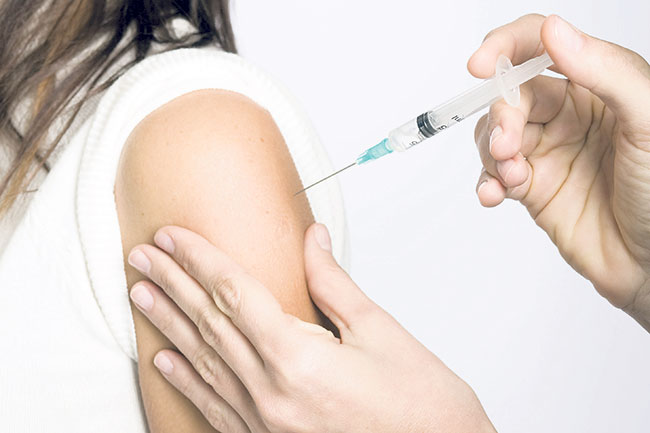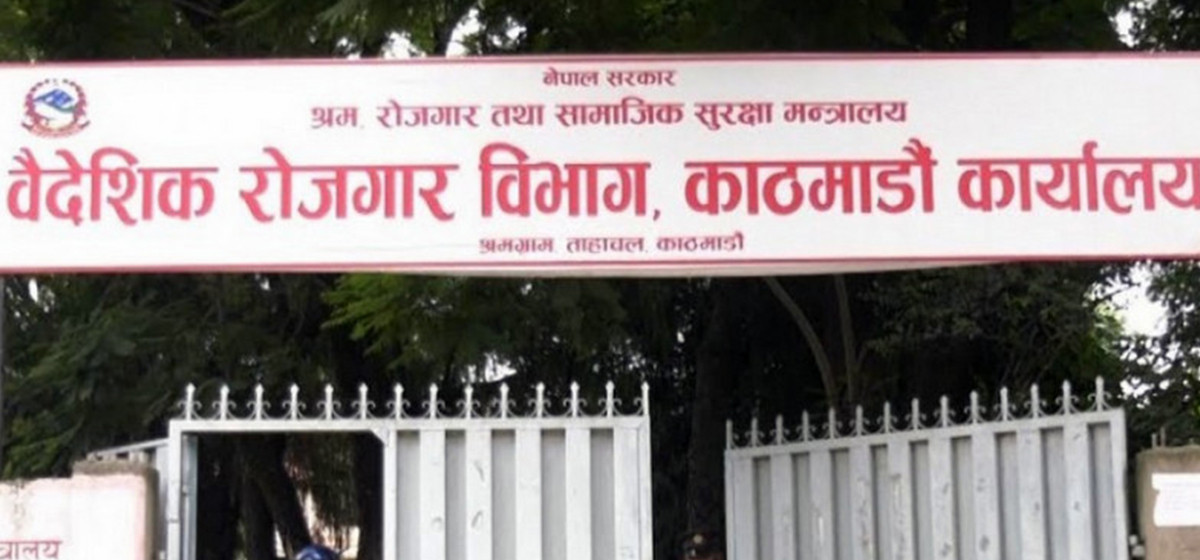
OR
Health Corner

Time and again we hear the alarming news that certain deadly flu virus has been detected in our city too. While we immediately start taking a few safety measures like not eating out or wearing masks, many of us aren’t armed with the most basic information to be able to safeguard ourselves properly. What are the symptoms of the swine flu virus? Do masks, sanitizers, and vaccines help to prevent this disease? We, at The Week, caught up with Dr Pukar Thapa, general physician at Alka Hospital, Jawalakhel, to know more about this contagious viral flu and how we can make sure we don’t suffer from it.
What is the swine flu virus?
Swine flu is a comparatively new strain of influenza virus that may have symptoms similar to regular flu. This influenza virus primarily infects the respiratory tract of pigs causing nasal secretion, barking coughs, and appetite loss. Viruses of swine flu have the tendency to mutate or change and can be easily contagious, spreading from person to person. The outbreak of swine flu was first observed in 2009 in Mexico with the infection of H1N1 virus. This flu soon became a pandemic infecting many people all around the globe. This summer has once again brought many cases of swine flu in Kathmandu and we have to be careful not to catch it because the best way to deal with it is to prevent it. But a simple sneeze of an infected person can transmit the virus, so you have to be really careful.

Can a human catch H1N1 virus by eating pork?
Swine flu virus is not a food borne disease. It is transmitted from an infected person to another in the same way as a regular flu. This virus mainly spreads through airborne droplets from a sick person’s sneeze or cough. However, the H1N1 virus mostly dies at 72 degrees Celsius so well cooked pork is completely safe to consume.
Are there any distinct symptoms of this disease?
Swine flu has the same symptoms as other regular viral flu. There are really no distinct symptoms. Chills, cough, chest ache, body ache, fatigue, high fever, sore throat etc are all indications of swine flu. If your regular cold gets cured within two days then there is no need to worry. However, a major symptom of swine flu is a severe cold causing difficulty in breathing. In such cases, you must consult the doctor immediately. Swine flu instantaneously affects human health. H1N1 virus has the tendency to damage your respiratory system, cause pneumonia and completely deteriorate your strength. In extreme cases, it might even be fatal.
What are some preventive measures that can be taken to avoid swine flu?
The intensity of swine flu may differ from person to person. A simple steam or home remedies may also kill the swine flu virus in some people whereas it will be completely ineffective for others. The best thing you can do if you have cold is to treat it immediately. Those who travel in public transports and go to public places must wear especially designed masks that prevent the virus from entering the human body. These masks are found in pharmacies all across the city. Avoid talking to people infected who seem to have a cold or are coughing and don’t shake hands with them either. One of the major ways to prevent the transmission of this disease is by constantly washing your hands. You can get rid of many germs this way. If there is a family member or a schoolmate with severe cold, he/she must be isolated immediately and taken to the hospital.
Can vaccines prevent this disease?
There have been vaccines developed that need to be taken on a yearly basis against the H1N1 virus. But these vaccines don’t come with 100 percent guarantee. There have been cases where swine flu has been detected in people who have taken these preventive vaccinations. So, like I said before, the best way to prevent swine flu is by taking adequate safety measures and staying away from infected people. However, a vaccine will also serve as a safety measure so it might be a good idea to get on during an epidemic.
How is swine flue treated?
There is no need to panic if you suspect you or someone you love has been infected with the swine flu virus. There are various treatments available in Kathmandu that can fully cure this disease so consult a doctor. An infected person, however, has to be kept completely in isolation so that he/she doesn’t transmit the virus to anyone else. A patient might take a week to fifteen days to get fully cured. The intensity of virus affecting a body depends on the immune system of that person. Children and old people are especially vulnerable to swine flu and so are pregnant women and those whose immunity has already been compromised because of other illnesses. If you come down with swine flu, get plenty of rest. This will help your immune system focus on fighting the infection. Also, drink plenty of water and other liquids to prevent dehydration, and have soup and clear juices to replenish your body of lost nutrients.
You May Like This

Swine flu death in Waling, alert issued
WALING, July 27: The Waling Primary Health Center in Syangja has issued an alert for the people of Waling and... Read More...

309 infected with swine flu in Chitwan: DPHO confirms
CHITWAN, September 1: A total of 309 patients have tested positive for swine flu in Chitwan, the District Public Health... Read More...

One swine flu case detected in Kathmandu
KATHMANDU, March3: A person was confirmed contracting H1N1 virus, commonly known as swine flu, at the Sukraj Tropical and Infectious... Read More...






Just In
- CAN adds four players to squad for T20 series against West Indies 'A'
- ‘Precast' technology introduced in the construction of bridges along Muglin-Pokhara road
- Leopard attack injures young man in Kanchanpur
- SC rejects writ petition filed against Home Minister Lamichhane
- Nepal and China sign two agreements in the presence of Finance Minister Pun
- Pun released on bail in Supreme Cooperative fraud case
- Govt should not look for enforcing populist budget for next FY: Former finance ministers
- DoFE requests relevant parties to provide essential facilities to foreign workers traveling abroad













Leave A Comment